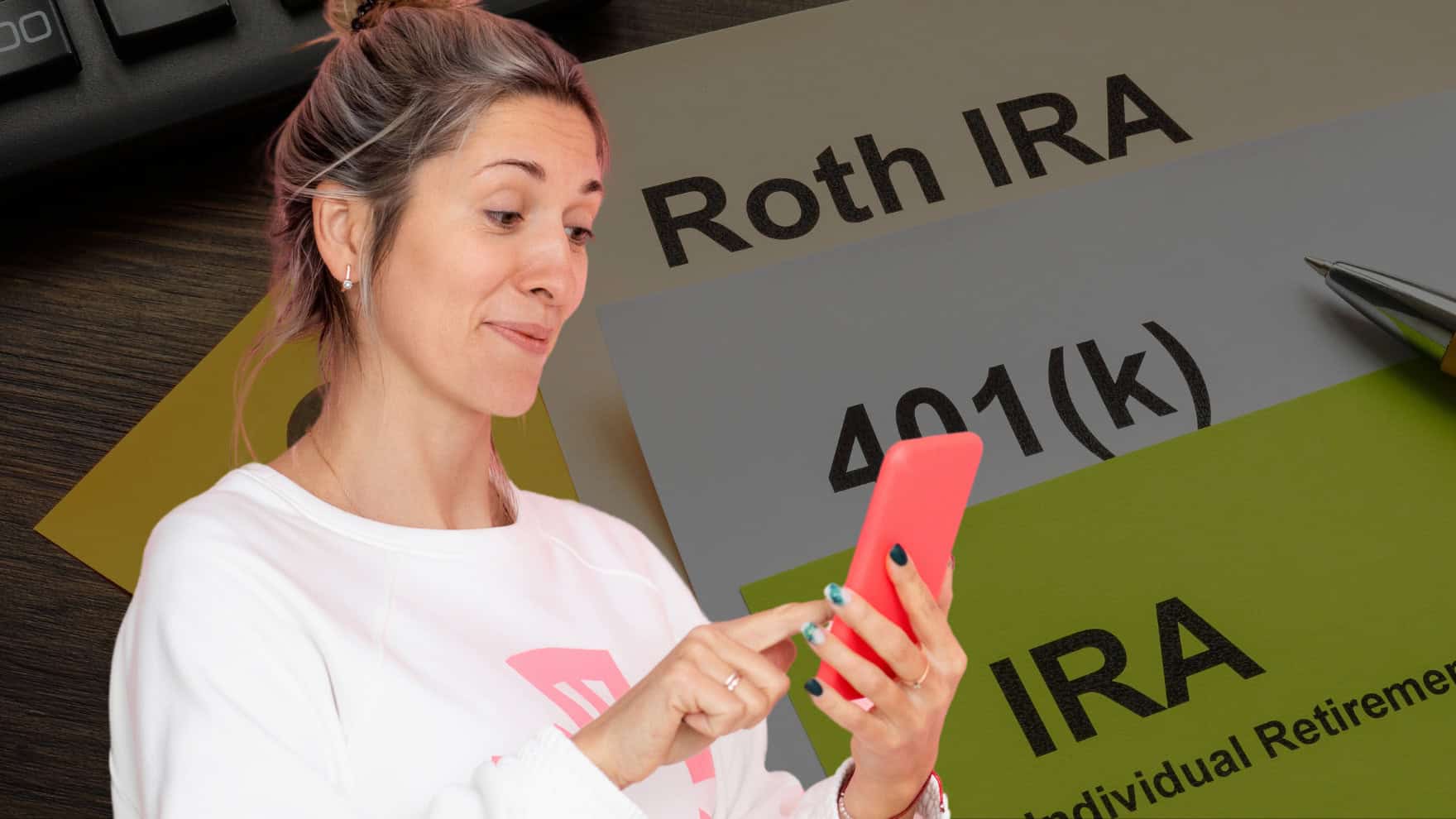Personal Finance
I make $135k a year and my company is offering a 401k or a 401k Roth - which one should I pick?

Published:
Last Updated:

A Reddit user asked if they should contribute to a traditional or Roth 401(k), or an account outside work.
You should consider your tax bracket now and in the future when deciding whether a traditional or Roth IRA is best.
You’ll almost always want to try to max out your employer match before investing outside of work.
Retiring early is possible, and may be easier than you think. Click here now to see if you’re ahead, or behind. (Sponsor)
In a recent Reddit post, an important question came up. The Reddit user said they make $135,000 annually and work at a job that offers both a traditional 401(k) and a Roth 401(k). Their company matches contributions, but those matching funds don’t vest for five years and they lose them if they leave before then — which they most likely will.
Their question was whether to invest in either of their workplace plans or opt for a Roth IRA instead. While the best person to offer advice on this would be a financial advisor that knows the ins-and-outs of their financial life and future goals, some general advice can also be helpful in making this choice.
If you have a choice of workplace plans and you’re deciding between a traditional and a Roth 401(k), it’s important to know how each one works:
So, how should you decide which to use? Consider your tax bracket now and likely tax bracket later. If you expect to be taxed at a higher rate in retirement — because you think your income will be higher or tax rates will increase in general — then you’d want a Roth 401(k). If you think you’re paying higher taxes now, you want the tax savings now so should choose the traditional 401(k).
By considering when the tax breaks are likely to save you the most, you can choose the account that minimizes the money you’ll send to the IRS over your lifetime.

There are undoubtedly benefits to just picking your own plan. You can choose a brokerage firm that you’re interested in, won’t have to worry about moving the money if you leave your job, and can gain access to a broader pool of investment options than a 401(k) makes available.
However, passing up an employer match isn’t a good idea because it is free money. The general rule of thumb is to invest at least enough to get your match before switching to other accounts. While the Redditor doesn’t think they’ll be at the company long enough to earn it, life may turn out differently and they may decide to stick around — which could lead to big regrets if they passed up free 401(k) funds for no reason.
The downsides of investing enough to earn the match are not big enough disadvantages to give up the chance at this free money. It’s likely worth contributing the necessary sum to earn the full 4%. The worst that happens in this case is they roll their contributions over into a Roth IRA, leaving the unvested matching funds behind if they leave their job early. But, in a best-case scenario, they end up getting this money and it makes them richer.
Ultimately, the right choice will depend on their goals and a financial advisor can help define those — but, investing in the workplace plan and picking the one offering the biggest tax breaks is a good, simple solution that should help set them on the path to future financial security.
Retirement planning doesn’t have to feel overwhelming. The key is finding expert guidance—and SmartAsset’s simple quiz makes it easier than ever for you to connect with a vetted financial advisor.
Here’s how it works:
Why wait? Start building the retirement you’ve always dreamed of. Click here to get started today!
Thank you for reading! Have some feedback for us?
Contact the 24/7 Wall St. editorial team.